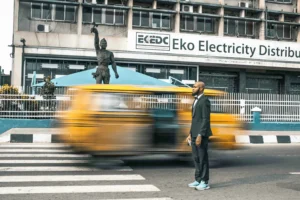In the bustling metropolis of Lagos, Nigeria, beneath the vibrant surface of city life, lies a tapestry of urban legends and myths that send shivers down the spines of locals and visitors alike. From haunted houses to cursed landmarks, these tales have been woven into the fabric of Lagosian culture, passed down through generations as cautionary tales and chilling campfire stories. In this article, we delve into the dark underbelly of Lagos’s folklore, exploring six of Lagos’ most spine-tingling urban legends and myths that continue to captivate the imagination and fuel the fears of those who call this bustling city home.
Scariest Urban Legends and Myths in Lagos
1. The Witch of Badagry
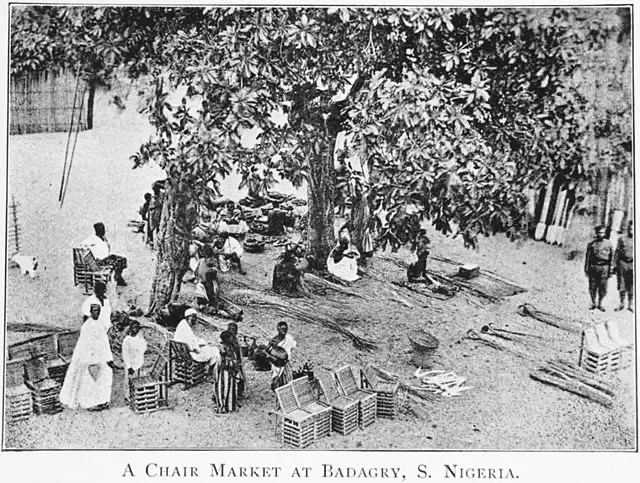
Nestled within the historical city of Badagry lies a tale steeped in darkness and mystery—the legend of the Witch of Badagry. According to local folklore, this powerful witch possesses unimaginable powers and dwells deep within the heart of the city’s dense forests. Tales of eerie encounters with the witch abound, from travelers disappearing without a trace to livestock found mutilated in the dead of night. Locals whisper of her malevolent presence, warning travelers to tread cautiously through the forest, lest they fall victim to her dark magic. Despite efforts to uncover the truth behind the legend, the Witch of Badagry remains shrouded in mystery, her chilling presence casting a pall of fear over the city and its inhabitants.
- The Witch of Badagry Address: Badagry – Lagos – Nigeria
- The Witch of Badagry Website
2. The Phantom Bus of Third Mainland Bridge
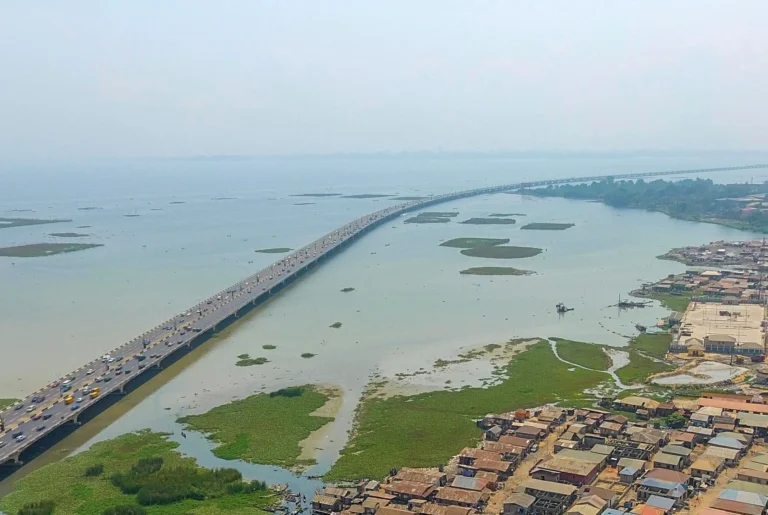
Third Mainland Bridge, a vital artery connecting Lagos Island to the mainland, is shrouded in tales of supernatural terror, with the legend of the Phantom Bus sending shivers down the spines of those who dare to cross its span. Locals speak of a spectral bus that materializes out of thin air in the dead of night, its headlights piercing the darkness as it hurtles towards unsuspecting motorists before vanishing into thin air. Some claim to have heard the disembodied cries of passengers echoing through the night, while others report chilling encounters with the ghostly conductor. Despite attempts to debunk the legend, the Phantom Bus of Third Mainland Bridge continues to haunt the imaginations of Lagosians, serving as a chilling reminder of the dangers that lurk in the shadows of the city’s most iconic landmarks.
- The Phantom Bus of Third Mainland Bridge Address: Third Mainland Bridge – Lagos – Nigeria
- The Phantom Bus of Third Mainland Bridge Website
3. The Legend of the Eyo Festival
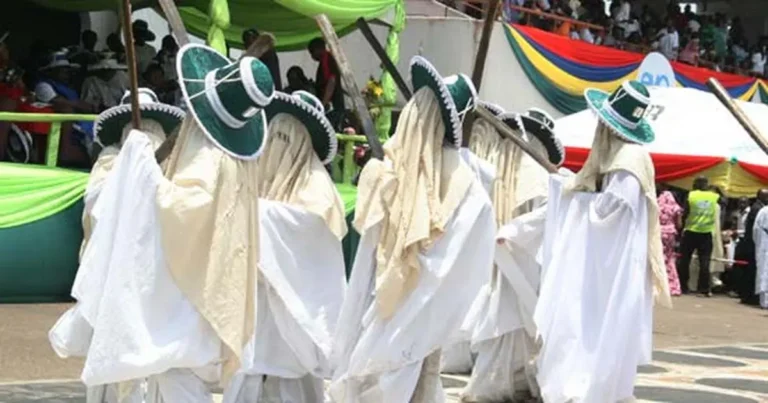
The Eyo Festival, a cultural celebration that dates back centuries, is steeped in tradition and mysticism, with tales of its origins shrouded in myth and legend. According to local lore, the festival honors the spirit of the “Eyo,” a mythical figure said to possess the power to ward off evil and bring prosperity to the community. Legend has it that the Eyo Festival was born out of a time of great hardship, when the city of Lagos was besieged by malevolent spirits and supernatural forces. In a desperate bid to appease the spirits and restore harmony to the land, the people of Lagos devised the Eyo Festival as a means of invoking the protective powers of the Eyo. Today, the festival continues to captivate and inspire, serving as a testament to the enduring power of myth and tradition in Lagosian culture.
- The Legend of the Eyo Festival Address: Lagos Island – Lagos – Nigeria
- The Legend of the Eyo Festival Website
4. The Underwater Kingdom of Olokun

Beneath the waves of the Atlantic Ocean lies a hidden realm of wonder and mystery—the underwater kingdom of Olokun. According to Yoruba mythology, Olokun is the god of the sea, revered for his vast wisdom and unfathomable power. Legend has it that his kingdom lies beneath the waves, a realm of breathtaking beauty and treacherous depths. Tales of mermaids, sea monsters, and lost treasures abound, with some claiming to have glimpsed the shimmering spires of Olokun’s palace rising from the ocean floor. Despite the allure of its mythical riches, the underwater kingdom of Olokun remains a place of mystery and danger, its secrets guarded by the enigmatic deity who calls it home.
- The Underwater Kingdom of Olokun Address: Olokun – Ondo – Nigeria
- The Underwater Kingdom of Olokun Website
5. The Witchcraft Markets of Lagos
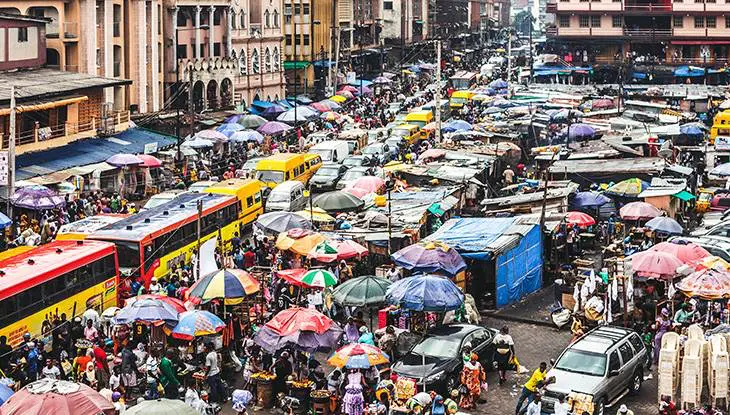
Deep within the labyrinthine streets of Lagos lies a network of shadowy markets where the arcane and the supernatural reign supreme—the witchcraft markets of Lagos. Legend has it that these clandestine bazaars are a hub of occult activity, where practitioners of dark magic gather to buy and sell their mystical wares. From potions and talismans to cursed artifacts and forbidden knowledge, the markets offer a tantalizing glimpse into the hidden world of witchcraft and sorcery. Despite efforts to crack down on their activities, the witchcraft markets continue to thrive in the shadows, their eerie presence casting a dark shadow over the bustling streets of Lagos.
6. The Ghosts of Bar Beach
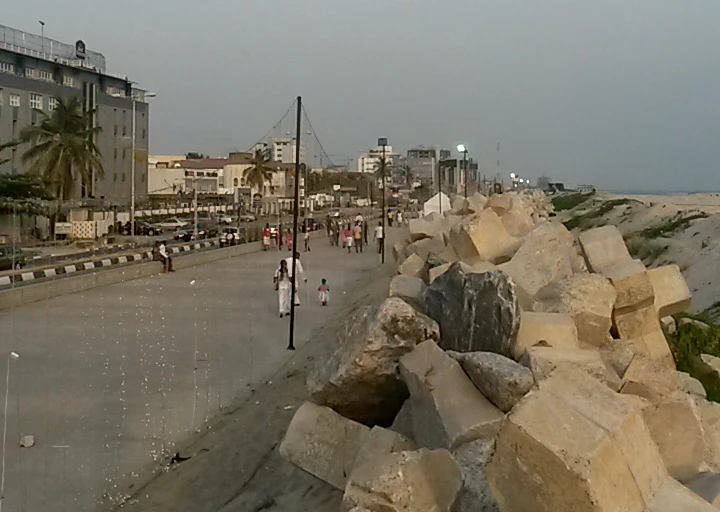
Bar Beach, once a bustling hub of activity and recreation, is haunted by the restless spirits of those who perished in its turbulent waters. According to local legend, the beach is cursed by the spirits of those lost at sea, who roam the shoreline in search of redemption. Tales of ghostly apparitions and eerie encounters abound, from sightings of phantom figures walking along the water’s edge to the sound of disembodied voices carried on the wind. Despite efforts to dispel the supernatural claims surrounding Bar Beach, the ghosts of its tragic past continue to haunt the imaginations of Lagosians, serving as a chilling reminder of the perils that await those who dare to venture too close to its haunted shores.
- The Ghosts of Bar Beach Address: Eti-Osa, Lagos 106104, Lagos, Nigeria
- The Ghosts of Bar Beach Website
Closing Thoughts on the Scariest Urban Legends and Myths in Lagos
As the sun sets over the bustling streets of Lagos and the city’s energy begins to wane, the echoes of its urban legends and myths continue to linger in the air, casting a shadow over the vibrant landscape. Whether rooted in truth or merely figments of imagination, these tales serve as a reminder of the mysteries that lie just beneath the surface of everyday life. As you navigate the streets of Lagos, remember to tread lightly, for you never know what eerie secrets and chilling encounters await in the shadows of the city’s most haunted corners.
Frequently Asked Questions on the Scariest Urban Legends and Myths in Lagos
Are these urban legends and myths based on real events?
While urban legends and myths often have roots in real events or historical context, they have been embellished and exaggerated over time through storytelling and folklore. Some of the urban legends featured in this article may have elements of truth, while others are purely fictional creations meant to evoke fear and intrigue.
Are these urban legends widely known among the locals in Lagos?
Yes, many of these urban legends and myths are deeply ingrained in Lagosian culture and have been passed down through generations. They serve as cautionary tales, sources of entertainment, and reflections of societal fears and anxieties. Locals are often familiar with these stories and may have their own variations or interpretations of them.
Can these urban legends be experienced firsthand?
While some urban legends and myths may involve locations that can be visited, such as haunted houses or cursed landmarks, experiencing them firsthand in a supernatural sense is unlikely. However, exploring the locations associated with these legends can provide insight into their origins and the cultural significance they hold in Lagosian society.
How do these urban legends contribute to the cultural identity of Lagos?
Urban legends and myths play a significant role in shaping the cultural identity of Lagos, offering insights into the fears, beliefs, and values of its residents. They serve as a form of storytelling, preserving local history and folklore, and fostering a sense of community among Lagosians who share these tales with one another.
Are there any efforts to preserve or document these urban legends in Lagos?
While formal efforts to preserve or document urban legends may be limited, they are often passed down orally through storytelling and folklore. Organizations and individuals interested in cultural heritage and local history may undertake initiatives to collect and archive these stories for future generations, ensuring that Lagos’s rich tapestry of urban legends and myths continues to be shared and celebrated.





